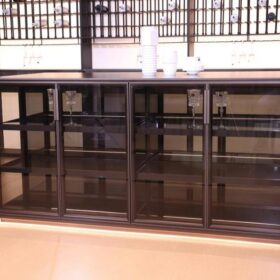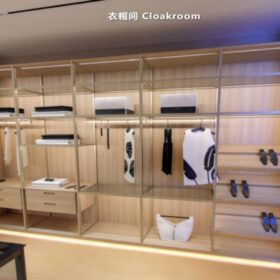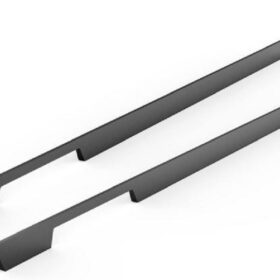Sustainable Practices in Modern Furniture Handle Production
In an era of escalating environmental concerns, the furniture industry faces a pressing need to embrace sustainable practices. Furniture handles, often overlooked but integral to any piece, present a unique opportunity for sustainability.
The Imperative of Sustainability
Modern furniture handle production has traditionally relied on materials like metal and plastic, which have significant ecological footprints. Metal extraction and processing consume vast amounts of energy and deplete natural resources. Plastics, derived from fossil fuels, not only pollute the environment but also take centuries to decompose.
Innovations in Sustainable Materials
To address these concerns, furniture manufacturers are turning to innovative materials that minimize environmental impact. Bamboo, a rapidly renewable resource, is a sustainable alternative to wood. Recycled aluminum, with its low carbon footprint, provides a durable and lightweight option. Biodegradable plastics, made from plant-based materials, offer a solution to the problem of plastic waste.
Energy-Efficient Production
Energy conservation is another crucial aspect of sustainable furniture handle production. Advanced technologies like LED lighting and energy-efficient machinery reduce energy consumption during manufacturing. Manufacturers are also investing in renewable energy sources, such as solar and wind power, to power their operations.
Responsible Waste Management
Minimizing waste is an essential component of sustainability. Furniture handle manufacturers are adopting closed-loop systems that recycle scrap materials and reduce waste generation. Biodegradable materials and compostable packaging further contribute to responsible waste management practices.
Consumer Awareness and Demand
Consumer awareness of environmental issues is driving the demand for sustainable furniture products. By educating consumers about the importance of sustainable practices, furniture manufacturers can create a market that rewards companies committed to protecting the planet.
Conclusion
Sustainable practices in modern furniture handle production are not only a necessity but also an opportunity for innovation and environmental responsibility. By embracing sustainable materials, energy-efficient processes, and responsible waste management, furniture manufacturers can create environmentally friendly products that meet the needs of today’s conscious consumers. These practices ultimately contribute to a sustainable future for the furniture industry and for generations to come.
-
2024-11-29Top Trends in Modern Kitchen Cabinet Pulls for 2024
-
2024-11-28The Ultimate Guide to Modern Kitchen Cabinet Pulls- Materials, Styles, and Tips
-
2024-11-27Elevate Your Kitchen Design with These Must-Have Modern Cabinet Pulls
-
2024-11-26Sleek and Stylish- The Best Modern Kitchen Cabinet Pulls for a Contemporary Look










